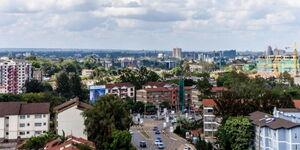Kenyans paid Ksh132.83, Ksh31.96 and Ksh32.33 more for one litre of cooking oil, Petrol and Diesel respectively in June compared to the previous months.
The above Consumer Price Indices and Inflation Rates for the last month were published by the Kenya National Bureau of Statistics(KNBS) on Thursday, June 30, 2022.
KNBS indicates that the inflation rate for June stood at 7.9 per cent while May’s rate was at 7.1 per cent, a difference of 1.6 per cent. The inflation gap has seen Kenyans digging deeper into their pockets to afford the bare necessities.
Macdonald G, Obudho, KNBS Managing Director, attributed the rise in inflation to the increase in prices of commodities.
“The rise in inflation was mainly due to increase in prices of commodities under; food and non-alcoholic beverages (13.8 per cent); furnishings, household equipment and routine household maintenance (9.2 per cent); transport (7.1 per cent) and housing, water, electricity, gas and other fuels (6.8 per cent) between June 2021 and June 2022”, he stated.
Evidently, the inflation rate has fluctuated in the past year from 6.3 per cent in June 2021 to the now 7.9 per cent , an inflation rate that has surpassed the upper limit of 7.5 per cent.
Central Bank of Kenya (CBK) Governor Patrick Njoroge had warned of inflation hitting above the 7.5% mark.
However, there is a glimpse of hope for Kenyans as the price of 50 watts of electricity is retailing at Ksh796.83 compared to Ksh837.18 in the previous year.
Kenyans were recently forced to cut costs on ‘luxuries’ as the price of petrol continued to increase in the past year.
One liter of Petrol retailed at Ksh127.98 in May-June 2021 rising to Ksh159.94 in June-July. The Energy and Petroleum Regulatory Authority (EPRA) reviews fuel on the 14th of every month.
Increase in fuel prices, the pandemic and the ongoing Russia-Ukraine row affected other basic commodities such as maize flour which rose to between Ksh230 and Ksh250.
The government has made efforts in reducing the prices through offering subsidies to dealers. Agriculture Cabinet Secretary, Peter Munya, on Tuesday, June 28, issued a directive suspending taxes and levies on imported maize.
However, this only translated to a Ksh2 drop in maize flour prices, with United Grain Millers Association (UGMA) chairperson, lamenting that the waiver of levies was not enough to necessitate a significant drop.
On Thursday, June 30, President Uhuru Kenyatta also assented to several bills including the controversial Finance Bill 2022 which took effect on Friday, July 1.
Among the commodities expected to increase after Uhuru assented to the bill are the cost of mobile will rise by between Ksh700 and Ksh5,000 with Kenyans paying an extra Ksh50 charge when purchasing per ready-to-use sim card.
Beer attracts a rate of Ksh134 per litre from Ksh121.85. Tobacco’s excise duty rose from Ksh1,500 to Ksh3,750. A 40 per cent excise tax on electronic cigarettes and other nicotine delivery devices was also introduced.
Imported sugar confectionary will be levied at Ksh40.37 per kilogramme while a similar unit of imported white chocolate will be charged Ksh242.29.
Nonetheless, the Value Added Tax (VAT) charged on cooking was cut down from 16 per cent to 8 per cent. Prices of bread, fertilizer, bottled water and non-alcoholic beverage will also reduce.












